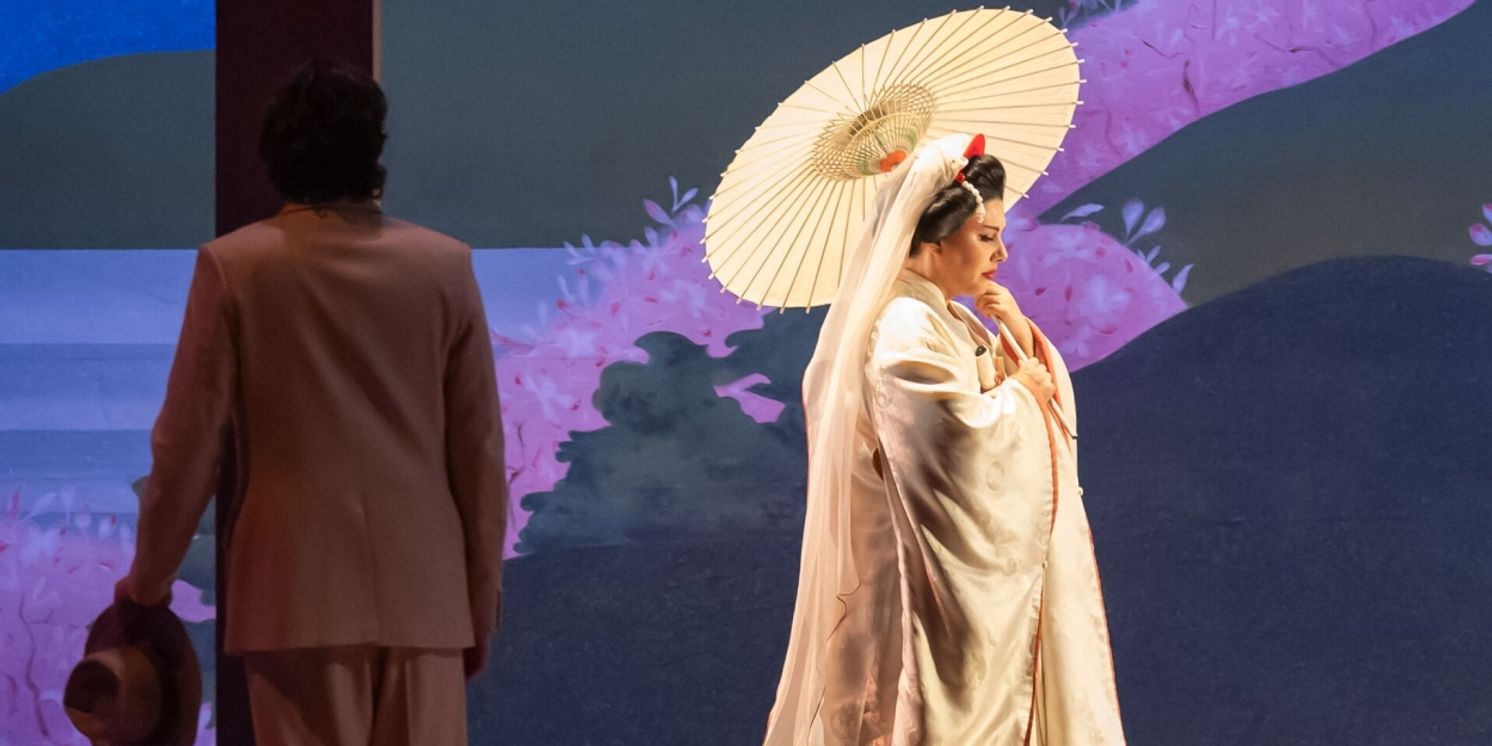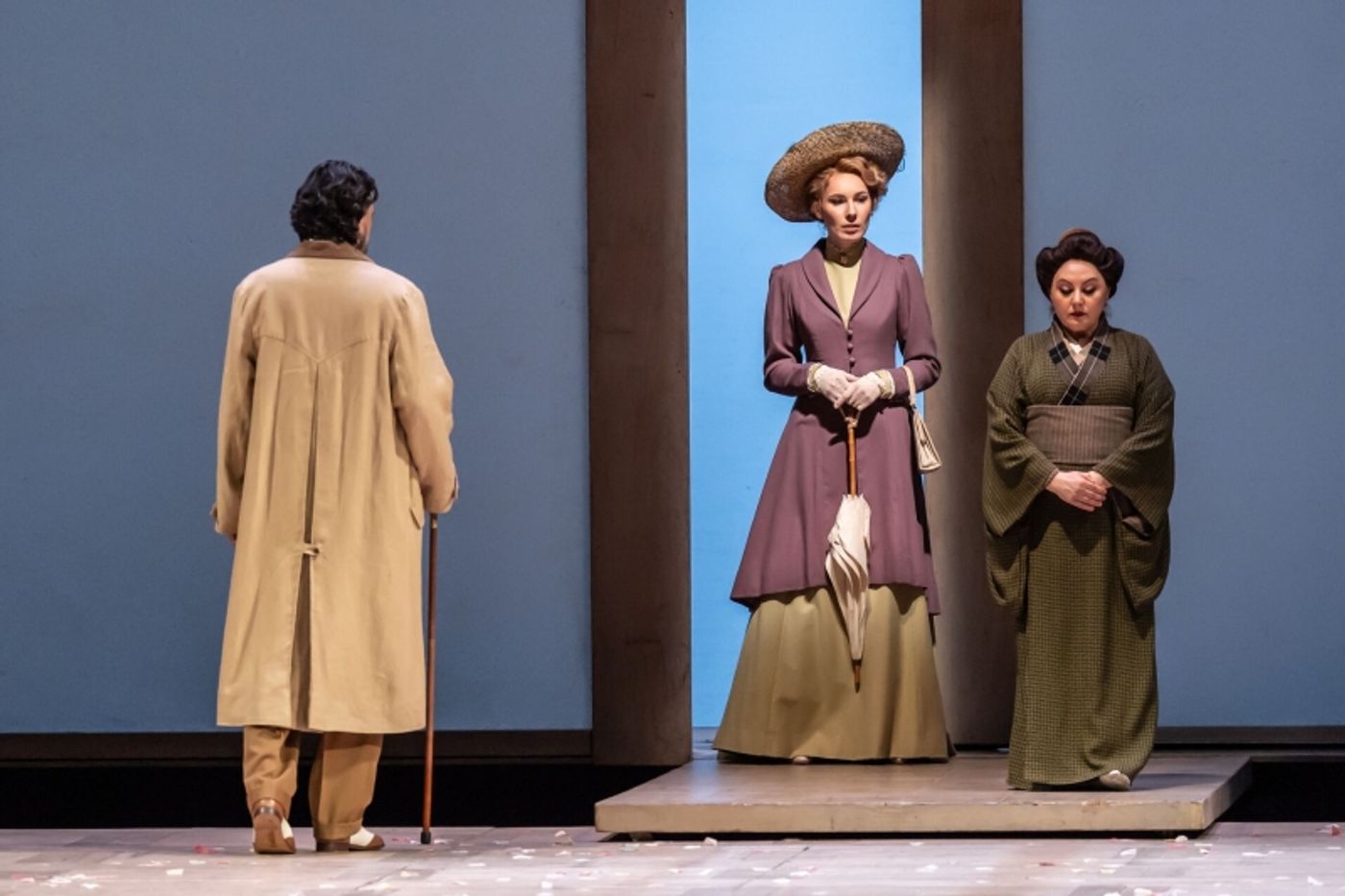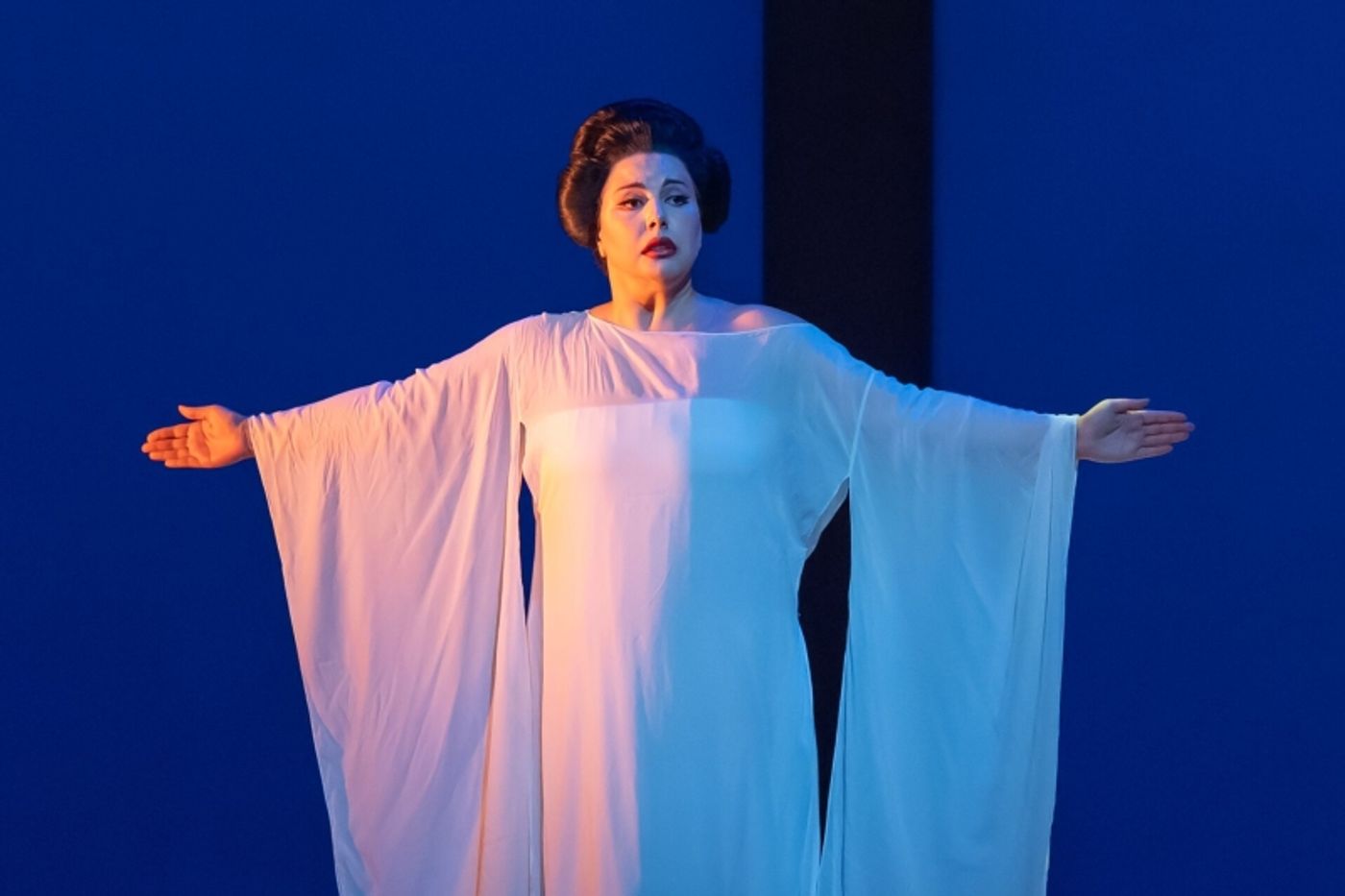Review: MADAMA BUTTERFLY, Royal Opera House
Bare but brilliant: Moshe Leiser and Patrice Caurier’s powerful production of Madama Butterfly returns once more to Covent Garden.

![]() There’s a singular simplicity in Madama Butterfly that draws in audiences year after year, decade by decade like moths to a flame: a man loves and leaves a woman; she gives up everything for him. With a staging that mirrors that bare but powerful concept, Moshe Leiser and Patrice Caurier’s 2002 production returns again to Covent Garden with more than a patina of authenticity.
There’s a singular simplicity in Madama Butterfly that draws in audiences year after year, decade by decade like moths to a flame: a man loves and leaves a woman; she gives up everything for him. With a staging that mirrors that bare but powerful concept, Moshe Leiser and Patrice Caurier’s 2002 production returns again to Covent Garden with more than a patina of authenticity.
After writing Madama Butterfly, Giacomo Puccini famously credited the Almighty for the score saying "The music of this opera was dictated to me by God. I was merely instrumental in getting it on paper and communicating it to the public." In recent times, the work has been beset by more earthly criticisms.
Its longstanding racial controversies around the depictions of Cio-Cio San and her compatriots (highlighted in last year’s untitled f*ck m*ss s**gon at the Young Vic) led to consultations with Japanese specialists, especially in the areas of costume and choreography. Small changes in the singers' posture, their vocal delivery and even how they place their hands have increased the overall authenticity and made it less about the Western view of Japan.

That the art form’s leading female characters have deeply unhappy love lives - and are more likely to end up in a morgue than in a marriage - is almost a given but Cio-Cio San still suffers one of the most heart-rending deaths in opera. German-Armenian soprano Hrachuhí Bassénz picks up the metaphorical baton from Asmik Grigorian as the benighted Butterfly while conductor Kevin John Edusei uses his literal baton to drive home a stirringly bravura performance from an orchestra who are very much up for it.
The minor revisions made in this latest take add a measure of authenticity which doesn’t detract from the core production’s power; those that decry these alterations as unnecessary or woke nonsense and things should just be left as they are may want to note that Puccini famously updated his original work four times after its official debut before finally arrive at what is now known the “Standard Version”.

Christian Fenouillat’s simple staging is unimpressive at first glance but means that, in terms of sensory balance, the vocals always stand out from the visuals. The sparse interior of Cio-Cio San’s living quarters tells its own tearful story of a life teetering on poverty. Having the Consul and Goro enter through a central slideaway door centres the attention on their presence and their effects on Butterfly’s life.
Cio-Can San’s demise is all the more painful for Pinkerton’s actions, something that Seokjong Baek mercilessly digs into with real gusto. The Korean tenor’s tender duet with Bassénz at the end of the first act is a back-and-forth to be truly savoured. His sublime acting brings out the grim sex tourist nature of the man who runs from his Japanese bride to set up another life in his homeland. The true mark of a wonderful villain is how he is received after the curtain falls and Baek was joyfully booed by the audience before waves of rapturous applause.
Madama Butterfly continues until 18 July.
Photo credit: Marc Brenner
Reader Reviews
Videos

